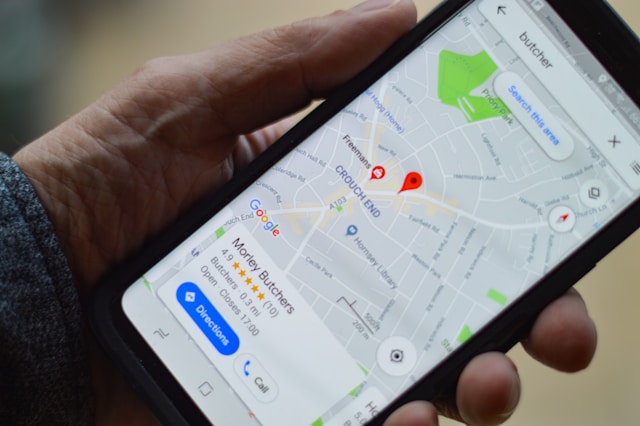Artificial intelligence (AI) has revolutionized almost every industry in the rapidly evolving digital landscape, and digital marketing is one of its most notable areas of influence. From automating tasks to enhancing customer experiences, AI is reshaping the way businesses approach their marketing efforts. If you’re not tapping into AI-driven strategies, you could be missing out on a range of benefits that could elevate your marketing game. Let’s explore how AI is revolutionizing modern marketing strategies and the advantages it brings to the table.
1. Personalization at Scale
Personalization has always been a core aspect of effective marketing. However, as customer expectations continue to rise, delivering tailored experiences at scale becomes increasingly difficult. This is where AI steps in.
AI technologies, particularly machine learning, are capable of analyzing vast amounts of customer data in real-time. This enables marketers to deliver highly personalized content, offers, and recommendations to individual users across various touchpoints, from emails to website experiences. AI allows businesses to segment audiences with greater precision, identifying behavior patterns and preferences that would be impossible to detect manually.
By using AI to enhance personalization, businesses can increase engagement rates, boost customer loyalty, and drive conversions. For instance, e-commerce platforms can recommend products based on a customer’s browsing history or purchase patterns, resulting in a more relevant and satisfying shopping experience. In turn, this leads to higher sales and an improved customer lifetime value.
2. Improved Customer Insights
AI excels in data analysis, making it an invaluable tool for gaining deeper insights into customer behavior. Traditional marketing analytics often rely on historical data, but AI takes this a step further by predicting future trends and behaviors.
Through predictive analytics, AI can help businesses anticipate customer needs, identify emerging trends, and refine marketing strategies accordingly. This ability to forecast future behavior allows companies to act proactively rather than reactively, giving them a competitive edge in their marketing efforts.
For example, AI-powered tools can analyze how customers interact with ads and content and then adjust targeting strategies based on these insights. Companies like Forbes leverage AI in their marketing to optimize campaigns and ensure they are meeting customer expectations. By making data-driven decisions, marketers can avoid costly missteps and refine their strategies to be more effective.
3. Enhanced Customer Experience Through Chatbots
One of the most visible applications of AI in digital marketing is the use of chatbots. These AI-powered virtual assistants are transforming customer service by providing instant, round-the-clock support. Chatbots can answer questions, resolve issues, and even guide users through purchase processes, all without the need for human intervention.
The advantage here is clear: businesses can provide excellent customer service without the high costs of maintaining a large customer support team. Chatbots are capable of handling thousands of interactions simultaneously, ensuring that customers receive timely and relevant responses, even during peak times.
Moreover, chatbots continuously learn and improve through AI, meaning they can become more accurate and efficient with time. As a result, businesses can offer personalized assistance that builds trust and encourages repeat business.
4. AI-Powered Content Creation and Optimization
Content creation is a cornerstone of any digital marketing strategy. However, producing high-quality, relevant content consistently can be time-consuming and resource-heavy. AI can significantly streamline this process by assisting in content generation and optimization.
AI tools can help generate blog post ideas, craft compelling headlines, and even create social media posts based on predefined keywords or topics. These tools analyze existing content on the web to determine what resonates with audiences, helping marketers create content that’s more likely to perform well.
Additionally, AI can assist with SEO by suggesting keywords, identifying content gaps, and providing optimization tips. AI optimization services can further enhance this by automating tasks like keyword research, competitor analysis, and SEO audits, helping businesses stay ahead of the curve in search engine rankings.
5. Cost Efficiency and Time Savings
Another undeniable benefit of AI in digital marketing is its ability to drive cost efficiency and save time. Many tasks that were once manual and time-consuming, like data analysis, campaign optimization, and customer segmentation, can now be automated using AI-powered tools. This not only saves time but also reduces the likelihood of human error, resulting in more accurate outcomes.
By automating routine marketing tasks, businesses can free up their teams to focus on more strategic initiatives, such as creative development or customer relationship management. This shift allows for a more efficient allocation of resources, ultimately leading to a higher return on investment (ROI).
Moreover, AI-driven automation ensures that marketing campaigns are optimized in real-time. AI can continually adjust campaigns based on performance data, ensuring that businesses are always putting their resources toward the most effective tactics.
6. Better Targeting and Segmentation
One of the keys to effective marketing is targeting the right audience with the right message at the right time. AI makes it easier to identify and segment audiences more precisely than ever before.
AI algorithms can analyze consumer data from various sources, social media, browsing behavior, purchase history, and then create detailed customer profiles. This allows marketers to deliver highly targeted campaigns to the most relevant audiences. As a result, businesses can reduce wasted ad spend and increase their chances of converting leads into customers.
For example, AI can help identify potential high-value customers who may have shown interest in a product but haven’t yet completed a purchase. Marketers can then target these individuals with tailored ads or offers to encourage them to convert.
7. Real-Time Campaign Optimization
In traditional marketing, campaign adjustments were often slow and cumbersome. Changes could take days or even weeks to implement, during which time the campaign might have lost momentum. With AI, marketers can make real-time adjustments based on live performance data, ensuring campaigns are always optimized for maximum effectiveness.
AI tools track user interactions and engagement with campaigns, and if certain elements aren’t performing as expected, the AI can automatically tweak variables such as targeting, timing, or ad copy. This dynamic approach to campaign optimization enables businesses to get the most out of their marketing efforts and ensure they’re always reaching their audience in the best way possible.
8. AI-Driven Ad Targeting
AI has significantly transformed the way businesses approach paid advertising. Through machine learning and behavioral analysis, AI can enhance ad targeting, ensuring ads are shown to the most relevant users.
For instance, AI algorithms can determine the optimal time to display ads, which platforms will yield the best results, and which keywords or interests to target. This leads to a more effective ad spend, better conversion rates, and reduced cost per acquisition (CPA).
Furthermore, AI can continuously learn from ad campaign results, making it increasingly effective over time. As a result, businesses can consistently achieve better ad performance without manually adjusting campaigns.
Conclusion
Artificial intelligence is no longer just a futuristic concept; it’s a vital tool for modern digital marketing strategies. From personalized customer experiences to enhanced targeting and real-time campaign optimization, AI is revolutionizing the way businesses approach marketing. By leveraging the power of AI, companies can streamline their processes, improve efficiency, and ultimately achieve better results.










